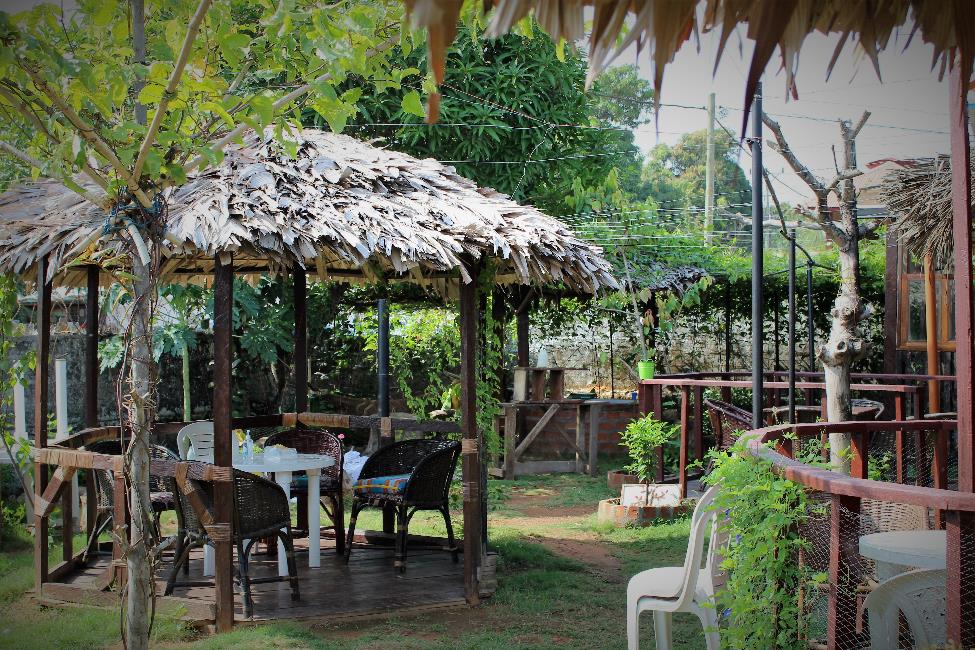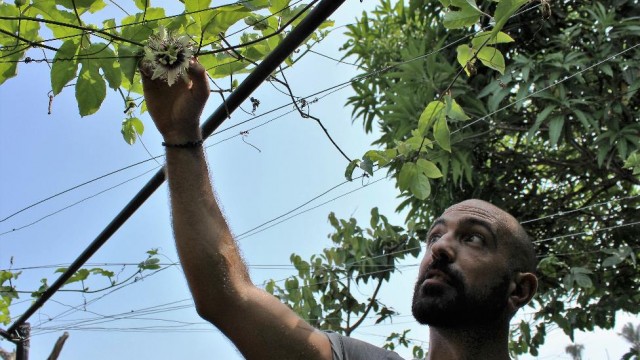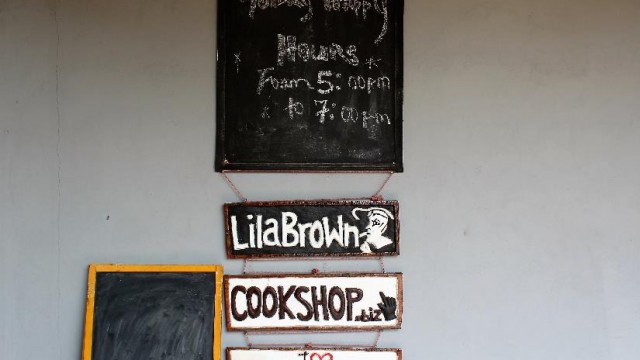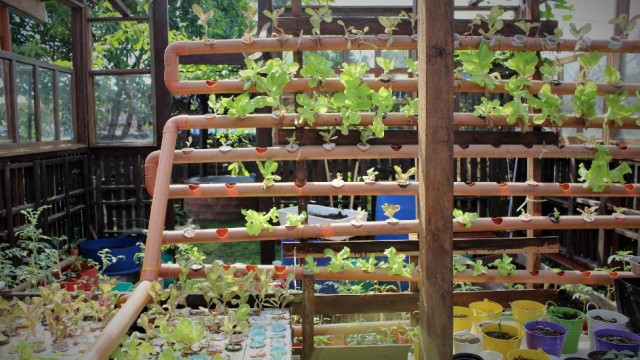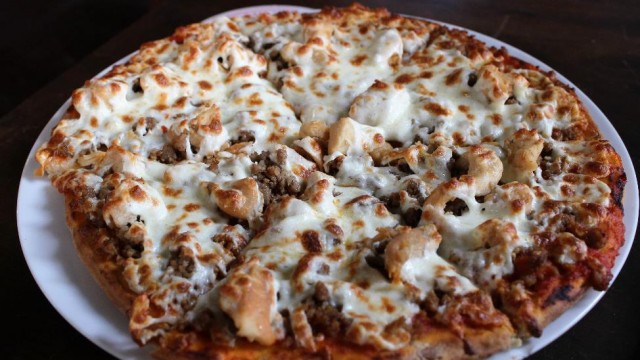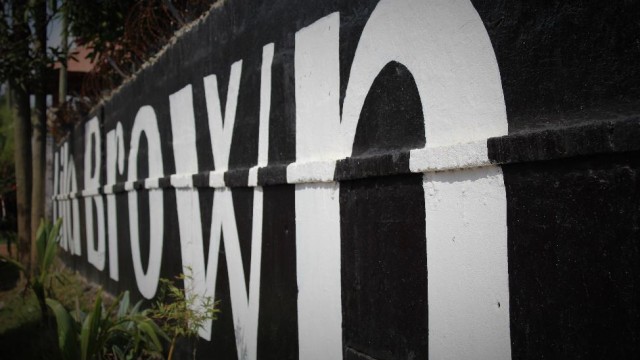MONROVIA, Montserrado – Nestled between Payne Ave and the beach on 19th street is a relative newcomer to the neighborhood that looks more like a botanical garden than the restaurant it is.
The particular look of the Lila Brown restaurant was consciously curated by founder and manager Tarek Ghosn, who wanted a relaxing environment.
“When I first established Lila Brown, I started it with the purpose of giving people somewhere to go. I know if you want a fancy dinner, you can go to places like Palm Springs, Royal, Cape Hotel, Mamba… If you want good food, you can go for FuZion, Mamba Point, you can go for Monroe Chicken… Or if you want good cheap food, you can go for Diana’s,†he said, before pausing to explain the appeal of his establishment. “The reason I think I’m different is you can sit here for 5 hours without feeling that you want to leave, and you don’t feel like the place is imposing on you.â€
Ghosn said he chose the name of the restaurant to reflect something “more oriented towards Liberia†after resisting names like “Little Havana.â€
His Buddhist father suggested that he call the restaurant “Lila†because, according to him, it means “beauty†in Hindi. The name’s closeness to the lilac color and flower also intrigued Ghosn.
“So naturally, I got excited and decided to call it Lila Brown,†he said. “Because it’s the richness of the brown soil of Liberia, the trees of Liberia, everything about Liberia screams richness and naturally, the beautiful women of Liberia. So the element of Lila Brown is brown beauty and Liberian beauty.â€
Coincidentally, when Ghosn went to register his business, he found out that “Lila†also had a Kpelle meaning – “satisfied.â€
He said he extended this theme of Liberian beauty in the makeup of the restaurant, claiming that everything involved in the restaurant’s construction and décor was sourced from Liberia. Even the bar was custom made from wood in Liberia. The one exception are the wine barrels he imported from Lebanon. He’s filled those barrels with cane juice, a local alcoholic beverage, to give it “an oaky taste.â€
Despite Lila Brown’s recent appearance in the Sinkor neighborhood, the restaurant had been a staple of the Mamba Point neighborhood for about three years until a land dispute prompted the move.
Concerning the move, Ghosn said, “The people I leased from lost the land. So right now it’s a vacant lot and I wasn’t allowed to take anything. At one point I had sheriffs on me while the business was running simply because the guy was frustrated.â€
The additional costs of constructing a new location from scratch, frustrated Ghosn. It was especially unfortunate as it came right after the Ebola outbreak, which hit most sectors hard, especially the hospitality industry.
“As a business, it’s a good business, but it’s not a successful one at all,†he said, adding that the confluence of these two catastrophes caused him to lose 12 kg. “The overhead is too much, we have to operate on a generator because [power from the Liberia Electricity Corporation] is not functioning all the time. Normally I have two generators, and one is destroyed right now that’s why I have to turn this one off now. Here, we have water and sewer but they are not connecting [new customers] so I have to use a well.â€
He used the move to the new area as an opportunity to change the scenery to be even more inviting. Lila Brown no longer has the relaxing sounds or the views of the waves beating against the shores.
Instead, the restaurant has been decorated with over two different species of plants including cocoa, guava, pineapple, melon, watermelon, and lots of passionfruit. There are also two different species of pawpaw (papaya), including a pink variety that is grown in Nigeria. Inexplicably, Ghosn made it a point to plant Liberian pepper every 1.5 meters around the restaurant. He has the habit of offering freshly picked pepper pods to unsuspecting patrons. Some of the plants are even used as ingredients in drinks, including the cinnamon and passion fruit.
On the side of the restaurant is a greenhouse along with an aquaponics system where Ghosn uses the waste from the fish he’s growing to fertilize herbs like basil.
Still, customers are not rushing to the new location. Since Ebola, Ghosn said, “something about Liberia hasn’t been correct, and my industry reflects directly on the health of the [economy] because the more people there are then that means the more comfortable people are spending money.â€
Contrary to what one would expect, Ghosn said the majority of his customers are not expats. “If they do an event for themselves, they show up,†he said, adding that he typically gets Liberians who are “government employees, private company [employees], bossmen, managers, and that’s the vibe I’ve been trying to push for.â€
He is pushing for Liberian customers because they are “more sustainable and they’re more fun. They enjoy the place. They enjoy it when I go make them drinks. I enjoy it when I go talk to them at their tables when I make inappropriate jokes.â€
During a visit on a Friday night, the clientele appeared consistent with Ghosn’s claims. “I know that expats are here, but I know they’re leaving,†he said. “The entire place was made for people to feel comfortable being around it. I don’t want people to not want to come here because the food is expensive. I don’t want people to not want to come here because they think they feel like they want something more sophisticated.â€
Along that line, he was adamant that he “cater to the entire population.†The prices for the food on the menu starts at “$5 for a Liberian dish on a daily basis.†In the past, Lila Brown has even offered palm butter made with fresh basil from the garden. Additionally, the menu offers about three of what Ghosn calls “Liberian pizza.â€
Ultimately, Ghosn stressed that the key for a stable supply of customers lies in enabling more Liberians to have disposable income to encourage them to go out.
“When the economy is moving, the people are more comfortable instead of sitting at home and stressing, why my job isn’t making me much money or where am I going to eat tomorrow or how am I going to pay for gas. More people sitting at home going, you know what, let’s just go out today, I feel in the mood. Most people have money but they don’t want to spend it because they don’t know what going to happen [tomorrow].â€
To achieve this, Ghosn believes there is no better sector to empower than the agriculture sector. He also advocated for supporting not only local Liberians in agriculture, adding “most NGOs only want to cater to local Liberians all the way on the farms and that only helps so much.â€
He gave the example of his friend William Tolbert, who struggled to get support from NGOs for his organic farm because he had lived in America. “They consider that privileged,†Ghosn said. “We need to support more people that want to invest in the country. We need to empower the local markets but we can’t do that by only investing in the locals. Lots of people are investing here who are not local but they’re teaching locals, they’re employing locals.â€
Featured photo by Jefferson Krua
